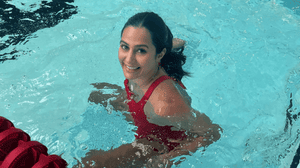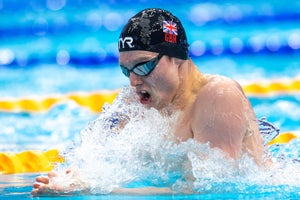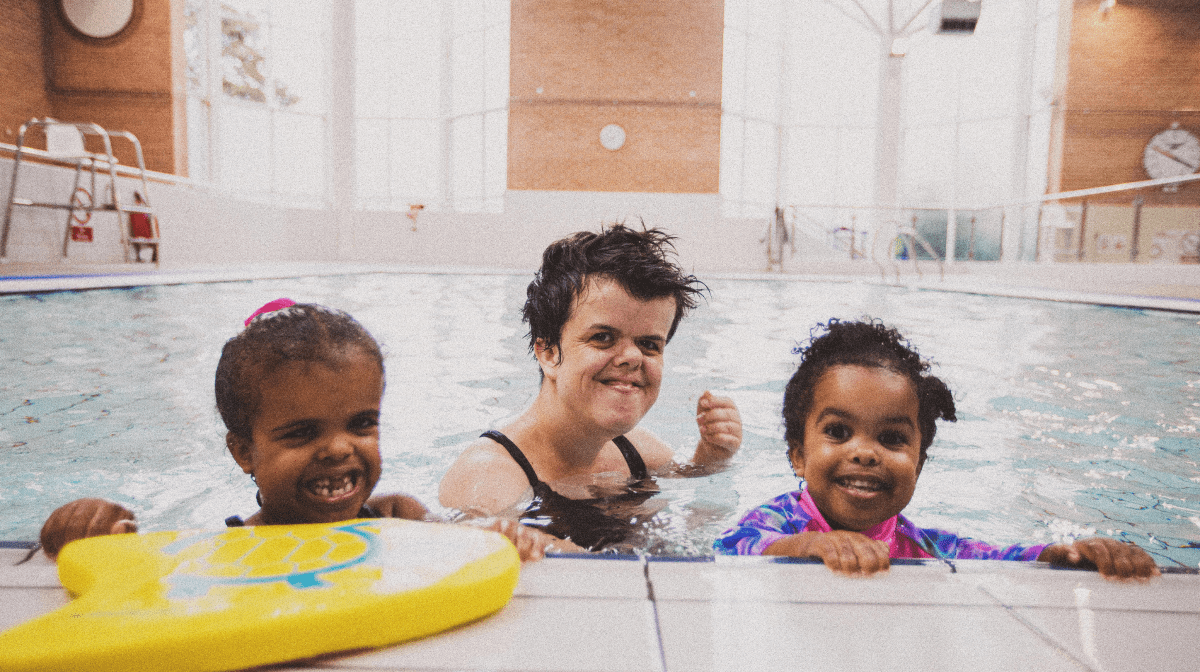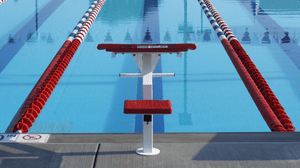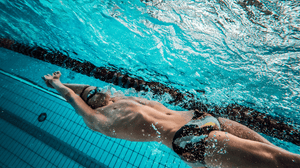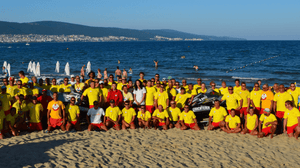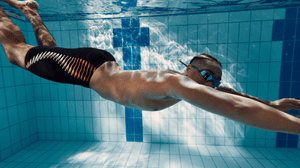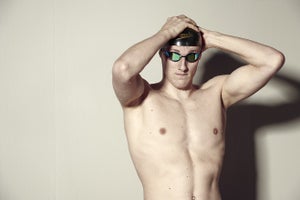
“I can hold my children, I can jump up and down holding them, and that feels great.”
Growing up with achondroplasia (a common form of dwarfism), Cathy Reay remembers swimming lessons as a painful experience. So for her daughters, she purposefully chose an instructor with experience of swimming with disabled children. It might take them longer to learn, but it’s clear how much they both love being in the pool.
https://www.youtube.com/watch?v=N7iumJCnmLQ&feature=youtu.be
Despite the barriers that she faced, Cathy was always motivated to swim from a young age. “I really wanted to swim, I realised quite early that for me, the experience of learning to swim would be met with its own challenges that other people weren't experiencing around me. And, typically with other sports that would be a reason for me to give up. But with swimming, it wasn't, because I saw how great the end goal would be,” Cathy remembers.
“As people with dwarfism, we need ways to build our core strength.”
Those challenges ranged from the accessibility of the pool itself — deep, even in the shallow end, for someone of Cathy’s height — to the experience and understanding of the swimming teacher. “The teachers I had through my childhood generally didn't know how to hold me in the water, or how to support me in the best way. And especially when you're in a group lesson with children that are a lot taller than yourself,” Cathy explains.
“As people with achondroplasia, weight in our bodies is proportioned differently to average height bodies. So, we have very heavy heads, very heavy bums. We have very short limbs that don't weigh very much, and have low muscle tone. And so, when we're moving through water, our limbs aren't that great at getting us from A to B. It needs more power behind it than it would a non-disabled person. That's my experience. It's not the experience of everybody with our condition.”
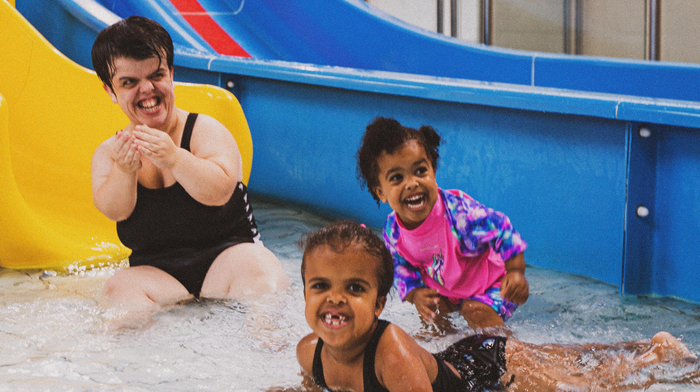
“When I'm swimming with my children as well, or when we're just in the water together, we can have so much fun, playfulness, and make those memories together.”
So understandably, Cathy wanted her daughters’ experience of learning to swim to feel much more in tune with them. “As people with dwarfism, or achondroplasia, we need to find ways to build up our core strength, particularly when we're young,” she says. “I purposefully chose an instructor that specialised in swimming with physically disabled children, because I understood the benefits of having an instructor that knew how to navigate this experience.”
“It was clear that the instructor knew how to hold my eldest in a way that was comfortable for her. She had a kind of fear initially of water, but she never had a fear of that person who was looking after her. I really saw how that was different for her, and I was really happy about that.”
“And the same instructor now teaches both of them, and they absolutely love it. It's definitely taking them a lot longer than I think it would some other non-disabled children to learn, but that's fine, cause as long as they enjoy doing it, I think it's really important for them to do.”
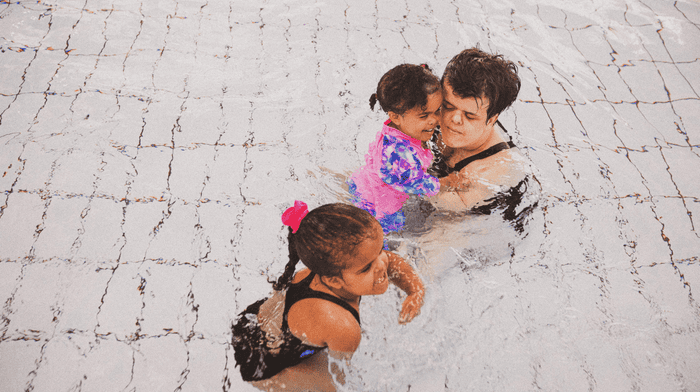
“When I'm swimming with my children as well, we can make those memories together.”
Being in the water now with her two girls clearly gives Cathy a sense of joy. While social attitudes are not always as inclusive as they should be, there’s fewer problems with physical access. They spend time in the child and baby pools, which are more accessible and comfortable for them to use. For Cathy, swimming creates a sense of possibility and physical connection that isn’t possible in the same way on dry land.
“I feel much more liberated than I do outside of water. And there’s a really appealing sense of freedom attached to it for me. When I'm swimming with my children as well, or when we're just in the water together, we can have so much fun, playfulness, and make those memories together. And that's really special.”
“My children feel very heavy when I'm out of the water, and I can't hold them for very long. Whereas in the water, I can hold them, I can move around with them, I can jump up and down holding them. And that feels great.”

Related Articles
